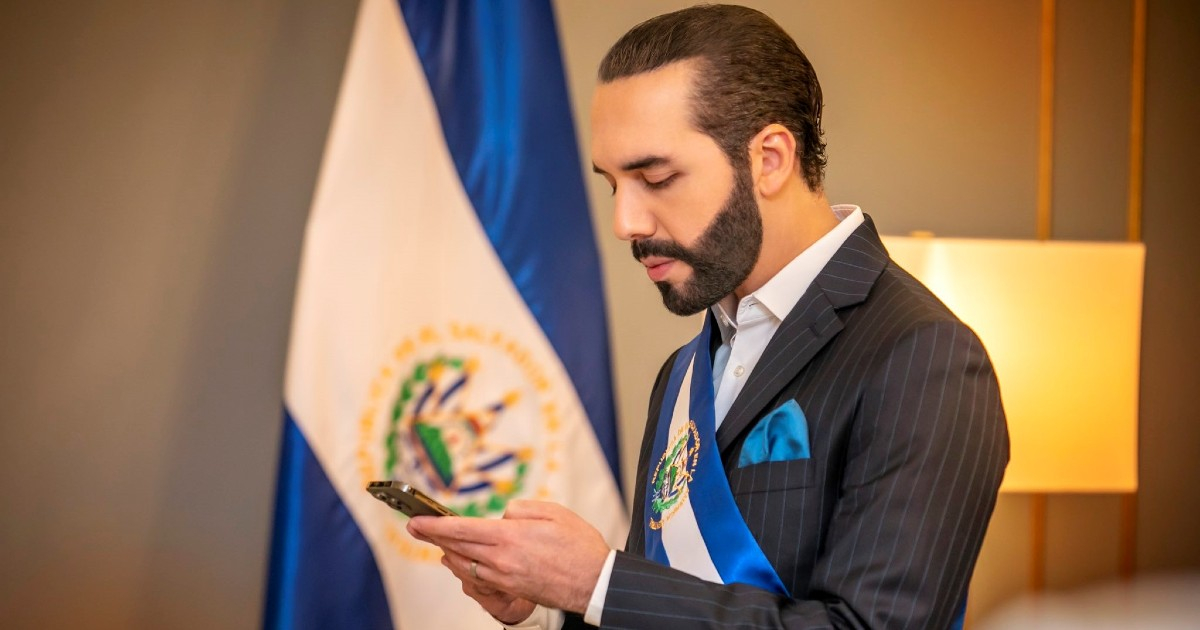
The president of El Salvador,Nayib Bukele, identified himself in his biography on the social network Twitter as“the coolest Dictator in the world”, adding a new image to his reputation as a heterodox ruler, in whom many see traits of an autocratic will and character.
Came to power in 2019, Nayib Bukele managed to capitalize on the population's discontent against the traditional parties in an election in which a large majority of Salvadorans gave him their vote in the first round.
At 40 years old, the young president of El Salvador is a very active user of social networks and usually makes his decisions known to the population through these platforms.
One of them, taken recently, made this Central American nation the first toadopt bitcoin as legal tender. The experiment, which seeks to reduce the cost of remittances sent from abroad, encountered some technical problems at its start.
The measure, according to Bukele, aims to allow Salvadorans to save the $400 million they spend annually on fees for remittances, mostly sent from the United States.
After winning the absolute majority in the Legislative Assembly with his New Ideas party, the president undertook a reform of the judiciary that, by decree, retired magistrates, judges and prosecutors over 60 years of age. Furthermore, with said majority in the legislative branch, he managed to leave open the possibility of being re-elected in the following elections.
For these and other decisions, Bukele is criticized by the country's opposition and has provoked statements of concern from other nations such as the United States, which included the attorney general of Guatemala and five judges of the Supreme Court on a list of corrupt and undemocratic actors. Court of El Salvador recently appointed.
“It is not a purge, it is a purge against independent judges,” judge Juan Antonio Durán, leader of a movement opposed to Bukele, considered this Friday at a press conference, the Salvadoran media reported.Week.
Focused on combating corruption in Central American countries, Secretary of State Antony Blinkenexpressed his doubts about the legality of the reforms undertaken by Bukele, which have led to the president today having the three branches of power in his favor.
For its part, the United States embassy in El Salvador said in a statement that the judges had been included on the list for having accepted their positions "in an unusual process and in apparent contravention of the mechanisms established in Article 186 of the Constitution." ".
Ironically about the criticism he receives for the concentration of power he has managed to achieve, Bukele used his Twitter biography to feed what, according to him, is a distorted image of his government, calling himself "the coolest dictator in the world." ".
However, these actions, which many interpret as authoritarian, as well as the limited success of the implementation of bitcoin as a legal currency, have not managed to undermine Bukele's high popularity.
Having exhausted the internal means of complaint to stop its controversial government action – thanks to the control over the judicial power that it now holds – the country's justice administrators have decided to go to the Inter-American Commission on Human Rights (IACHR) to “denounce the Salvadoran State, for the violation of human rights” that derive from its reforms of the judicial system.
“Given the extreme seriousness and urgency that cause violations that are difficult to repair, it has been requested that provisional measures be adopted by the Inter-American Court or precautionary measures by the IACHR, in order to request that the Salvadoran State suspend the validity of the reforms,” they emphasized in a statement.
At the beginning of September, the new magistrates of the Constitutional Chamber interpreted an article of the Constitution to allow Bukele to run for immediate re-election in 2024 if he so wishes. Bukele, 40 years old and in power since 2019, enjoys broad popular support and has capitalized on citizen discontent over the parties that governed in the last three decades.
“I have decided, so that there is no doubt, not to propose any type of reform to any article that has to do with the right to life (from the moment of conception), with marriage (maintaining only the original design, a man and a woman) or with euthanasia,” the president wrote on his Facebook account, with the intention of showing a negotiating and democratic spirit with issues that are not part of the reformist core that guarantees Bukele quasi-totalitarian power.
Faced with such a "concession" from the president to the conservative sectors of the country, the director for the Americas of Human Rights Watch, José Miguel Vivanco, questioned Bukele's position via Twitter: "In case some unwary still thought that Bukele is a modern leader." , wrote.
What do you think?
SEE COMMENTS (1)Filed in: